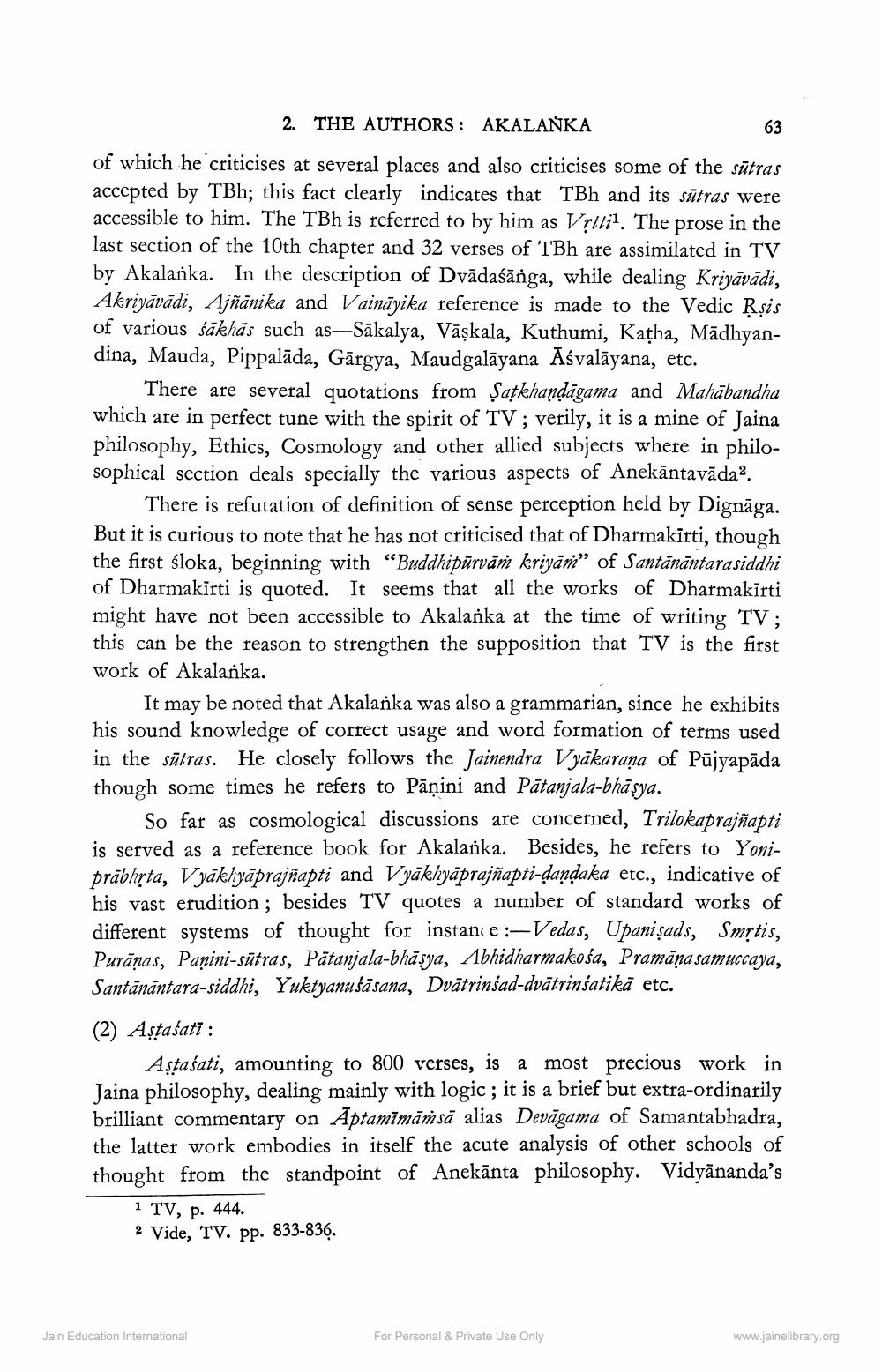________________
2. THE AUTHORS: AKALANKA
of which he criticises at several places and also criticises some of the sutras accepted by TBh; this fact clearly indicates that TBh and its sūtras were accessible to him. The TBh is referred to by him as Vṛtti1. The prose in the last section of the 10th chapter and 32 verses of TBh are assimilated in TV by Akalanka. In the description of Dvadaśānga, while dealing Kriyāvādi, Akriyavadi, Ajñānika and Vainayika reference is made to the Vedic Ṛsis of various sākhās such as-Sakalya, Vāṣkala, Kuthumi, Katha, Madhyandina, Mauda, Pippalāda, Gargya, Maudgalayana Aśvalayana, etc.
There are several quotations from Satkhandagama and Mahabandha which are in perfect tune with the spirit of TV; verily, it is a mine of Jaina philosophy, Ethics, Cosmology and other allied subjects where in philosophical section deals specially the various aspects of Anekāntavāda2.
There is refutation of definition of sense perception held by Dignaga. But it is curious to note that he has not criticised that of Dharmakirti, though the first śloka, beginning with "Buddhipurvām kriyām" of Santānāntarasiddhi of Dharmakirti is quoted. It seems that all the works of Dharmakirti might have not been accessible to Akalanka at the time of writing TV; this can be the reason to strengthen the supposition that TV is the first work of Akalanka.
63
It may be noted that Akalanka was also a grammarian, since he exhibits his sound knowledge of correct usage and word formation of terms used in the sutras. He closely follows the Jainendra Vyakaraṇa of Pūjyapāda though some times he refers to Pāṇini and Patanjala-bhāṣya.
So far as cosmological discussions are concerned, Trilokaprajñapti is served as a reference book for Akalanka. Besides, he refers to Yoniprabhṛta, Vyakhyaprajñapti and Vyakhyaprajñapti-dandaka etc., indicative of his vast erudition; besides TV quotes a number of standard works of different systems of thought for instance :-Vedas, Upanisads, Smṛtis, Puranas, Panini-sutras, Pātanjala-bhāṣya, Abhidharmakośa, Pramāņasamuccaya, Santanantara-siddhi, Yuktyanusāsana, Dvātrinśad-dvātrinśatikā etc.
(2) Aṣṭaśati:
Astasati, amounting to 800 verses, is a most precious work in Jaina philosophy, dealing mainly with logic; it is a brief but extra-ordinarily brilliant commentary on Aptamimämsä alias Devagama of Samantabhadra, the latter work embodies in itself the acute analysis of other schools of thought from the standpoint of Anekanta philosophy. Vidyananda's
1 TV, p. 444.
2 Vide, TV. pp. 833-836.
Jain Education International
For Personal & Private Use Only
www.jainelibrary.org




